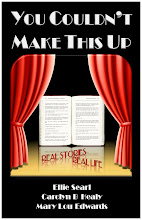
Lance Armstrong-wannabes have forced a hostile takeover and they’re taking bipeds hostage. They’ve taken over the I&M Canal Trail and walkers, birdwatchers, joggers ENTER AT YOUR OWN RISK!
Over the
past year, I’ve noticed a rise in dangerous speed and a decline in civility
among bicyclists on the I&M Canal Trail.
Zooming past, weaving in and out, riding ‘no hands’ and ‘no manners’ has
become prevalent but recently the already unsafe situation became even more treacherous
because of the closing of the cyclists’ preferred raceway, the Centennial
Trail, for a three-year construction project.
Furious that their favorite speedway is off-limits, the sprocketheads seem intent on traumatizing those who dare share the I&M Canal. Fully costumed in space-age helmets, their derrieres swathed by diaper-like padded training tights and their tootsies shod in aerodynamic pedal-booties, the cycle-commandoes invade from behind intent on recreating the Tour de France.
Decades ago, I vowed to my day camp Girl Scout buddy “…someday I’m going to live in this forest…” even though the Seventeen Year Cicadas chose that summer to make an appearance. While I’ve never managed to actually live in that forest, I do walk the I&M Canal Trail, a National Historic Landmark, not two miles from where I learned to tie a square knot. And I cherish that peaceful preserve.
Daily I’m privileged to walk in Monet-like beauty, the very path where mules towed barges of grain, lumber and salt, the exact trail that established Chicago as the transportation hub of the United States, an incredible milestone on the Underground Railroad, and I appreciate, Scout’s honor, that I’m beyond lucky.
We’re all lucky — the babies in strollers, in-line skaters, hard-breathing joggers, dog walkers, seniors testing out newly acquired bionic knees and those just looking for respite from the 24/7 demands of technology who get to share the wealth with the herons, turtles, butterflies and coyotes.
Lucky that
is until now. Cue up the theme from the
shark-threatening Jaws, because the fierce Lance-wannabes have stealth-attacked and
turned a simple walk into a hike on the wild side.
Completely ignoring the Forest Preserve’s posted rules about speed limit and signaling when passing, the bicyclists, wearing shirts advertising international race teams, fly past intent on their cardiac workout, large LCD screens velcroed to their biceps registering every bleep of their little tickers with nary a thought given to jumpstarting someone else’s cardiac arrest.
Either ignorant of or unwilling to acknowledge the inherent instability of a bike, particularly where twigs and branches abound, the nitwits blow-off rules of common sense while jeopardizing the health and safety of everyone else on the trail. Apparently an old-style warning bell on the handlebars is aerodynamically incorrect and a shout of “on your left” is too taxing. Everyone else has to hop, trip, jump and fall to avoid collision, if they can, if not, too bad.
To be fair, not all of the trail bicyclists are adrenaline junkies. The casual bike pedaler is also at risk but the refusal by most to warn “on your left” when coming from behind and passing is common and dangerous. For the most part, I only hear bikers call out a passing warning to other cyclists (hmmm, maybe afraid to get hit by a bike), but, as for pedestrians, oh well, and the run-over smashed frogs and turtles with their shattered shells that are left in their wake are just collateral damage, if the two-wheel wild ones even notice at all that they’ve killed an animal.
One morning a stealth biker so startled me as he actually brushed my sleeve while flying past that I jumped back into the path of his riding partner who was passing me on the right! Dumb and Dumber flew on at breakneck speed focused on their anaerobic thresholds. The fact that I was on my side of the trail, that pedestrians have the right-of-way, that they never signaled, that they broke the law, that they came close to shattering my spine — irrelevant. It’s all about the paceline, the clipless pedals and the almighty *PB.
One older man who has walked the path since boyhood suggested we sprinkle tacks along the way. “That’ll cut down on the racers,” he said. A roller-blader volunteered a paint-ball gun to identify the look-alike cowards who whizz past with impunity confident that bipeds can’t catch up with them. “You have the perfect storm for hit and run,” he observed. “A lone walker smashed by a flying biker — have you ever seen a heron finger a culprit or heard a turtle testify in court?” he asked.
Some startled folks have shouted Please signal! The Believe It or Not responses range from a snarled My wheels make a whirling noise that you should be able to hear, to Get off the *&^%#@ trail if you’re afraid of bikes. An obscene gesture suffices for the less creative.
After witnessing an altercation in the parking lot between a jogger and a cyclist, I decided to search for help. After weeks of ‘pass the buck’ which Illinois agencies practice as an art form, I think I hit pay dirt, at least I hope it’s dirt.
The Metropolitan Water Reclamation District acknowledges that their abrupt and protracted closure of the Centennial Trail exacerbated an already dangerous situation on the Canal. They directed me to the Cook County Forest Preserve which also concedes that: Houston, we have a problem . . . and both have expressed a willingness to undertake an educational program, but when? In the meantime, the Forest Preserve Police have begun issuing speeding tickets on the trail.
At last we just might score one for the mommy walking her toddler, for the guy who is rehabbing his heart, for the jogger trying to get in shape — for all the Joe & Joni Schmoes who believe this land was made for you and me.
Bike Bullies, you are on notice!
* Personal Best








